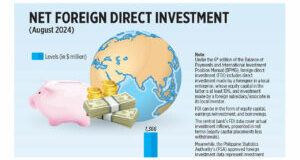
Economic planning, where the government uses policies such as taxation, subsidies, spending, or nationalization, in order to direct economic outcomes, is back in vogue. Its proponents often liken economic planning to planning done by individuals in the economy. The difference, they claim, is that national economic planning can help accomplish larger economic, national, or social goals that the individual wouldn’t.
However, human beings are not infallible. Even the best laid plans of mice and men run often go awry. All plans, whether individual or centrally-derived, can fail. Of course, economic planners recognize this fact. In the case of failure, they often argue, the economic planner can just discard the current plan and readjust, just like the individual. On its face, this argument sounds reasonable enough. But this is a case where the economic way of thinking shines: incentives matter.
Identifying a plan’s failure can sometimes be straightforward (although, as Donald Boudreaux points out, it is not always obvious): if some goal is established and the goal is not reached, we can say the plan failed. However, why the plan failed is often a hard question to answer: did the plan fail because it is inherently a bad plan? Or did the plan fail because it was poorly executed?
Individual planners and economic planners face different incentives to understanding why a plan fails. The individual planner, who faces most (if not all) of the costs and all of the benefits of their actions, faces strong incentives to figure out why a plan failed and whether it should be abandoned or not. If my get-rich-quick plan is to sell tobacco-flavored toothpaste and nobody buys it, I face the incentive to figure out why. If I keep investing my resources into tobacco-flavored toothpaste, I will certainly be made worse off: those resources have alternative uses and the benefits of using those resources to make tobacco-flavored toothpaste exceed the costs. In other words, I have devoted too many resources to developing this product. Given my goal (getting rich quick) and the fact I face the full cost of using those resources, I have the incentive to dump the plan as a failure and use my resources in a different way.
Economic planners do not face the same incentives. They face neither the full costs or the full benefits of their plans. Consequently, they face perverse incentives to find out why the plan failed. If some economic planner decided that the sale of tobacco-flavored toothpaste was a national priority, how might they react to the failure of the plan? Perhaps, by some stroke of luck, they would realize that people do not want tobacco-flavored toothpaste and abandon the plan altogether. More likely, however, the planner would likely conclude that too few resources were devoted to producing tobacco-flavored toothpaste rather than too many resources. The planner may devote more resources toward advertising or other means to accomplish their plan. This is especially true if their job, say as the Director of the Federal Agency to Promote Tobacco-Flavored Toothpaste, depends on the success of the plan. In short, while the economic planner could realize their plan has failed and abandon it, the incentives are not aligned to make this outcome likely.
Tobacco-flavored toothpaste is a silly example, but we see this behavior all the time. One example in particular comes to mind: the COVID-19 price controls. During COVID-19, the Federal and many state governments imposed price controls on essential goods. The logic was that it would preserve required equipment for hospitals and prevent price gouging. However, shortages of these goods predictably appeared and hospitals had a difficult time acquiring the products. Rather than recognize the plan had failed to increase goods available, the governments doubled down, blamed firms, and began prosecuting “hoarders” and “price gougers,” exacerbating the problem. The shortages persisted and the very policies that created the failure remained (in fact, the policy actually made the pandemic worse). The planners failed to see why their plan failed.
Bad policies persist in both the private and the public sector. Planners are unwilling or unable to admit their plans have failed and adjust. Poor managers cause firms to fail, inability to adjust causes individuals to go bankrupt. However, when individual plans fail, those resources are freed up to go to other uses. When economic plans fail, the government planners often pull on more resources, increasing waste.
In conclusion, while it is possible that economic planning could work as a series of experiments, where the “good” are kept and the “bad” are discarded, we have little reason to think such an outcome is likely. The incentives to understand why a plan has failed are simply not there.
Jon Murphy is an assistant professor of economics at Nicholls State University.




